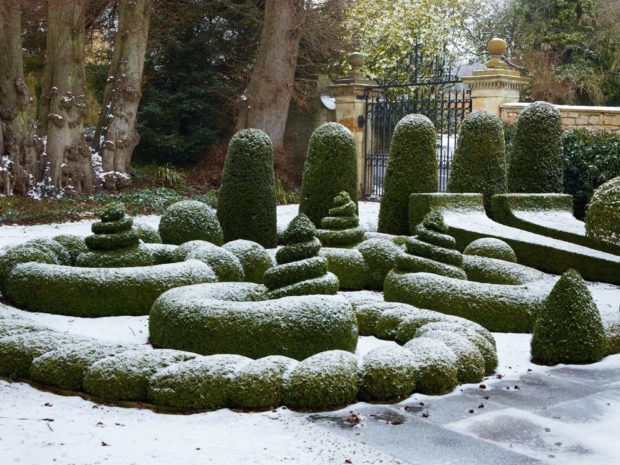When winter comes, your once colorful and blooming garden blends in with the rest of the mostly white and gray surroundings. But your landscape doesn’t have to be as colorless as the other landscapes in your area when you can do something about it. By strategically choosing what plants and trees to use, your winter does not have to look dreary bleak.
Let your yard stand out during the winter season by executing these five landscape ideas for the cold, snowy season.
1. Find plants with interesting barks
As your plants’ leaves fall off with the coming of winter, the only thing left for them to show off would be their trunks and branches. This is why it is a wise move to look for trees with a visually unique bark, one that would still be appealing even when the rest of the trees are covered in snow. Birch trees and dogwoods are among the best examples, not to mention easier to place in most landscape designs. Coral bark Japanese maple, Japanese flowering cherry, crape myrtle, and Chinese lacebark elm are also great examples with their colorful bark.

2. Go for evergreens
Evergreens are perfect for winter because beyond what their name obviously tells you, they are also available in blues, such as the dwarf blue spruce, and yellow, as in the case with the Gold Thread false cypress. More than looking impressive when covered in snow, evergreens also help define your landscape during the rest of the year. Even planting one to two evergreens is enough to provide a beautiful backdrop for your flowering shrubs or flower beds. Evergreens are also great accents to any home. They are especially attractive in the winter, thanks to their tall, columnar appearance.
Photo by King Garden Designs, Inc.
Among the evergreens that you can include in your winter landscape are yews, hemlock, pine, red cedar (juniper), white-cedar (arborvitae), fir, and spruce.
3. Introduce more four-season perennials and winter plants
There are plants that can survive winter and still remain colorful and beautiful despite how cold it is. Some of them are heather with its white, pink or purple flowers, Japanese quince with its cup-shaped flowers, pansies with its flashy colors, and hellebores that have flowers that can bloom even in the middle of winter. You may also want to plant more snowdrops, crocus with more of its cup-shaped flowers pointing upwards, daffodils that may bloom way too early in winter, and sarcococca with its fragrant, creamy flowers. If you want to change up your garden’s look later, you should remember winter flowering plants such as chionodoxa, daphne, winter jasmine, witch hazel, viburnum, and winter aconites, among others.
Photo by jane_challinor
Many perennials may look like they wither and die in the winter, but their roots are still holding on to bloom in the spring. Some great examples would be catmint, forget-me-nots, Peruvian ivy, coral bells, coreopsis, and guara. There are also rudbeckia, Russian sagem fernleaf bleeding hearts, beard tongue, and hellebore to consider.
4. Fill your lawn with hardscaping elements
You can do something to prepare for and beautify your garden for the winter without relying solely on plants. Add some amazing focal points to your loans, such as a bench, trellis, sculpture, and arbor. You can try to lay out a river rock or pea gravel in your yard for your pathway.. Boulders are also great additions to your lawn, as long as you bury them deep enough so they would seem like a more natural fit with the rest of the landscape.
Photo by James Martin Associates
5. Prepare your lawn
It also helps if you aerate your lawn to provide it more oxygen, water, and fertilizer. Giving it more fertilizer will also help your landscape prepare for the winter season. As it encourages more root growth, it will allow your plants to survive the winter and start off healthy for the next spring.
It is also important to keep the ground free from fallen leaves for the roots in the soil to receive more sunlight. For this task, you can use waterproof tarps to gather and dispose of the leaves properly. This should be continued with a more thorough cleanup of foliage and other annuals, something that can help prevent insects and diseases from spreading to healthy plants.
Other things that you can do in preparation for winter include laying down a layer of mulch over your lawn to keep your plants’ roots from ever freezing up as well as preparing to winterize your home’s irrigation system. The latter is a preventive move that can save yourself from costly repair services for your plumbing.
These five design ideas can bring your lawn to life, even in the middle of winter. Invest in the right plants that can survive through the cold season. Consider hardscaping to further breathe life into your landscape. For all these to work, you need to make sure that your lawn is cleaned up and well-cared for.

